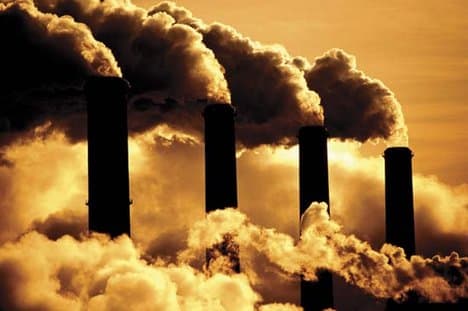Build Your Home With Carbon Dioxide (CO2) Bricks
It's high time that we humans realise that the CO2 emissions need to be controlled if we want to save our planet from Global warming. Research engineers at the University of Newcastle have began working on a refreshingly new method of capturing CO2 emissions generated from fossil fuels and other industrial processes. The trials of the experiment will be performed in a mineral carbonation research pilot plant at the University. The goal for the team is to transform the captured carbon dioxide into rock-solid bricks which can be comfortably used in the construction industry. If successful, we'll soon be able to build our homes with CO2 bricks.

The project has received about $9 million in funds from Australian & NSW governments and Orica. Research professors, Bodgan Dlugogorski and Eric Kennedy have already demonstrated the feasibility of the project on a smaller scale in a laboratory. Professor Dlugogorski says that their project is different from traditional CO2 storage mechanisms (like geosequestration & ocean storage) in that it permanently converts carbon dioxide into a usable product than simply storing it.
Earth's natural mineral carbonation system is very slow, says professor Kennedy. The duo are working on speeding up that process to prevent accumulation of CO2 in the atmosphere. They are also aiming to make the entire process cost effective.
Read more about the project on source link below.
Source: #-Link-Snipped-#

The project has received about $9 million in funds from Australian & NSW governments and Orica. Research professors, Bodgan Dlugogorski and Eric Kennedy have already demonstrated the feasibility of the project on a smaller scale in a laboratory. Professor Dlugogorski says that their project is different from traditional CO2 storage mechanisms (like geosequestration & ocean storage) in that it permanently converts carbon dioxide into a usable product than simply storing it.
Earth's natural mineral carbonation system is very slow, says professor Kennedy. The duo are working on speeding up that process to prevent accumulation of CO2 in the atmosphere. They are also aiming to make the entire process cost effective.
Read more about the project on source link below.
Source: #-Link-Snipped-#
0
